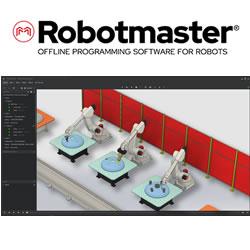Why Customer Service Robots Need Ethical Decision-Making: Trust and Benefits for Businesses
.jpg)
The push toward incorporating artificial intelligence (AI) assistants is becoming increasingly pronounced in the world of customer service. Businesses are constantly on the lookout for innovative ways to enhance the customer experience, and AI-powered customer service robots are at the forefront of this revolution.
As we navigate through this technological advancement, the need for ethical decision-making in AI becomes paramount. The integration of moral robots in customer service does more than just streamline operations; it fundamentally alters the relationship between businesses and their customers. And when robots are programmed to make ethical decisions, it fosters an environment of increased trust and transparency. Customers are more likely to engage with a service that they believe operates fairly and with their best interests at heart. This trust is not easily earned but is a trophy in the competitive realm of customer satisfaction.
How Ethical Decision-Making Enhances Customer Satisfaction
One of the most compelling arguments for ethical AI in customer service is the direct correlation between ethical choices and improved customer satisfaction. When customers perceive that their interactions are governed by fairness and empathy, their satisfaction levels with the service provided increase significantly. This is because ethical decision-making in AI mirrors the values customers seek in human interactions, making the service feel more personalized and considerate.
The challenge of programming AI with values such as empathy and fairness lies at the heart of ethical AI development. These values are complex and multifaceted, requiring a sophisticated approach to AI programming. Developers must ensure that AI systems can understand and prioritize these values in their decision-making processes, ensuring that every customer interaction is handled with care and respect.
Preventing Bias and Ensuring Accountability
A significant concern in the deployment of AI in customer service is the potential for biased decisions. Ethical programming must include safeguards against biases, ensuring that decisions are made fairly and without prejudice. This involves constant monitoring and updating of AI systems to reflect a broad spectrum of perspectives and experiences.
Accountability and oversight are critical components in the ethical deployment of AI in customer service. Businesses must establish clear guidelines and mechanisms for monitoring AI decisions, ensuring that they adhere to ethical standards. This includes regular audits and the ability to intervene when AI systems deviate from ethical norms.
As consumers become more aware of the potential pitfalls of AI, their demand for ethical AI solutions has increased. Businesses that prioritize the development of moral robots are not only meeting this demand but are also setting new standards for ethical practices in the industry.
The Necessity of Ethical AI in Business
Implementing ethical decision-making in customer service robots provides businesses with a competitive edge. In a market where trust and customer satisfaction are paramount, businesses that demonstrate a commitment to ethical AI practices are more likely to attract and retain customers.
Ultimately, the integration of ethical decision-making capabilities in customer service AI presents a win-win scenario for businesses and their customers. By prioritizing ethical considerations, businesses can enhance customer trust, satisfaction, and loyalty, leading to improved business outcomes. As we move forward, the development of moral robots in customer service will become more than a competitive advantage; it will be a necessity in building sustainable and ethical business practices.
Mike Szczesny is the owner and vice president of EDCO Awards & Specialties, a dedicated supplier of employee recognition products, branded merchandise, and athletic trophies. Szczesny takes pride in EDCO's ability to help companies go the extra mile in expressing gratitude and appreciation to their employees. He resides in Fort Lauderdale, Florida.
Comments (0)
This post does not have any comments. Be the first to leave a comment below.
Featured Product

